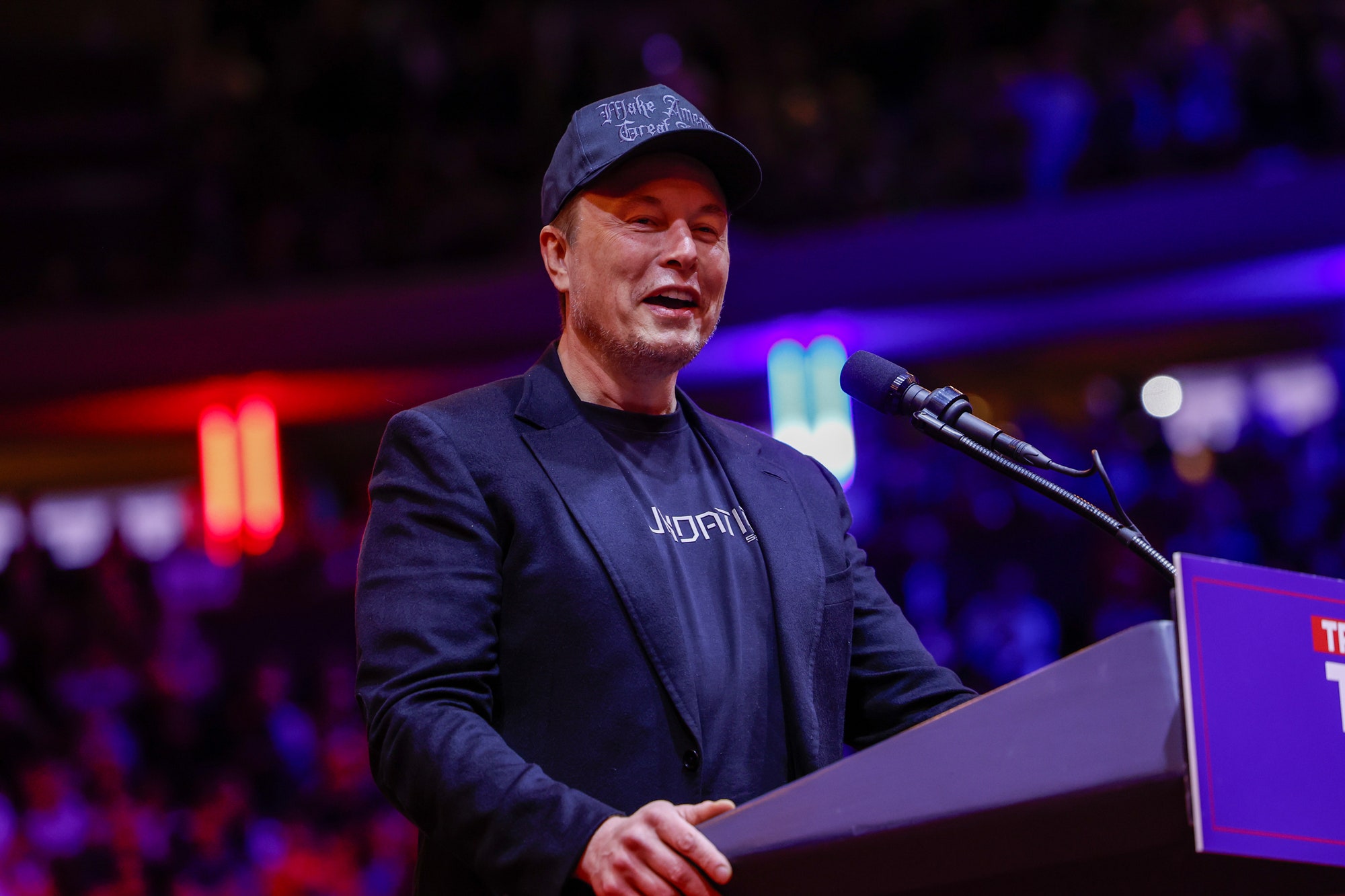Elon Musk recently commended Jeff Bezos, his rival and the owner of The Washington Post, for not endorsing a candidate in the next U.S. presidential election, in an unexpected display of camaraderie. However, there has been criticism over the decision, since more than 200,000 digital users have canceled their memberships as a result. Musk, who frequently attacks the media, particularly The Washington Post, praised Bezos on his platform, X (previously Twitter). He wrote, “Kudos to Bezos,” igniting interest in the strange partnership between two of the biggest tech titans in the world.
Credits: The Indian Express
A Controversial Decision: Why Bezos Chose to Cut Endorsements
The move to halt endorsements, which reportedly blocked a potential endorsement for Vice President Kamala Harris, was not a decision Bezos made lightly. With The Washington Post already under fire for alleged political leanings, Bezos argued that endorsing a candidate would reinforce the perception of media bias. In an opinion piece, he wrote, “What presidential endorsements actually do is create a perception of bias. A perception of non-independence. Ending them is a principled decision, and it’s the right one.”
In an era when public mistrust of the media is on the rise, Bezos thinks that maintaining the newspaper’s credibility requires nonpartisanship. His opinion is in line with worries on both political sides that big media companies are too politically involved. However, there was a considerable pushback, with thousands of digital subscribers quitting in protest, demonstrating how contentious the public still finds the issue of media neutrality.
Musk’s Surprising Support for Bezos: A Case of “The Enemy of My Enemy”?
Musk’s support for Bezos is noteworthy given the two entrepreneurs’ history. The rivalry between Musk’s SpaceX and Bezos’ Blue Origin, as well as their often conflicting views on technology and leadership, has been widely publicized. Yet Musk’s endorsement of Bezos’ decision to end candidate endorsements suggests a shared understanding of the challenges facing modern media.
As someone who frequently criticizes mainstream media, Musk has repeatedly called out The Washington Post on what he perceives as biased reporting, especially in stories about him. So, while Musk’s “Kudos to Bezos” comment might seem out of place, it aligns with his ongoing critique of what he perceives as media overreach and bias.

Credits: WIRED
Washington Post Allegations Against Musk: National Security Concerns and Visa Claims
Not all is smooth between Musk and The Washington Post, though. Just days before Musk publicly praised Bezos, the newspaper published a report questioning Musk’s work authorization in the United States during the 1990s and hinted at possible security concerns tied to his communications with Russian President Vladimir Putin. The report’s timing raises questions about whether The Washington Post may have overstepped in attempting to probe Musk’s past and connections, potentially inflaming his perception of the media as biased.
Musk swiftly denied the claims, clarifying that he worked legally in the U.S. during the 1990s, transitioning from a J-1 visa (for academic exchange) to an H-1B visa (for temporary work). Musk’s legal explanation came alongside a public statement on his platform, where he shared, “I was on a J-1 visa that transitioned to an H1-B.” He dismissed The Washington Post’s insinuations as politically motivated and an attempt to mislead the public about his character and intentions.
Bezos’ Quest for Credibility and Public Perception in Media
Musk has been praised, but The Washington Post is becoming increasingly skeptical. Bezos believes that his decision to avoid endorsements is an effort to change how the public views him. Even though readers are disappointed, he hopes it will highlight The Washington Post’s dedication to objective reporting. In his opinion piece, Bezos pointed out that “most people believe the media is biased,” highlighting the importance of avoiding endorsements in order to establish credibility.
Bezos has previously expressed concerns about media integrity. He has implemented a number of measures to maintain independence and credibility since purchasing The Washington Post in 2013. But now that a controversial election is approaching, it’s unclear if his approach will be successful, particularly given that prominent people like Musk are simultaneously praising and criticizing the paper.
This post was originally published on here







